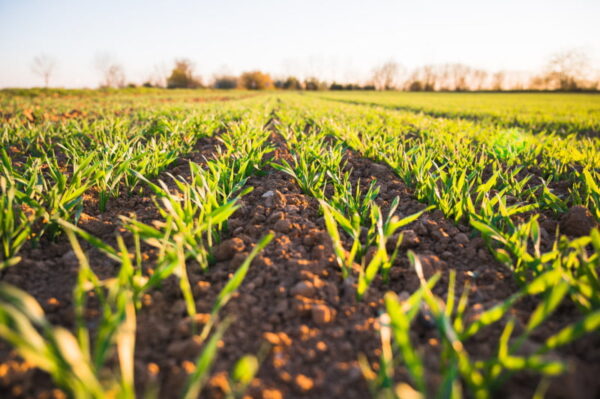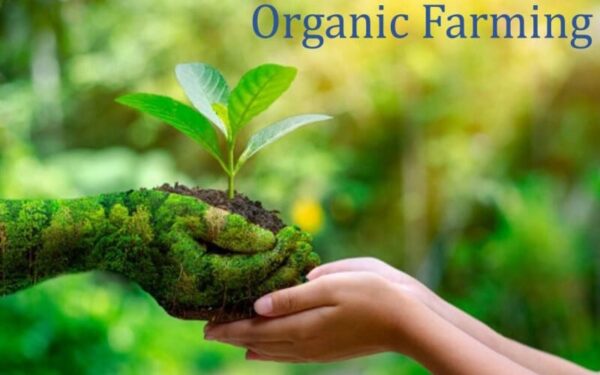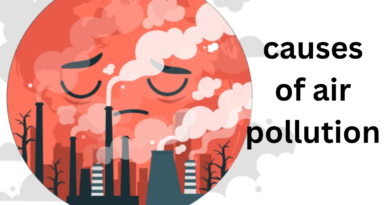Organic Farming: Cultivating a Sustainable Future
Organic farming is more than a movement; it’s a transformative approach to agriculture that emphasizes harmony with nature. By eliminating synthetic chemicals and focusing on natural processes, organic farming offers a sustainable, health-conscious alternative to conventional practices. Let’s explore the world of organic farming and understand its importance for our planet.
Understanding Organic Farming:
Organic farming is an agricultural method that uses natural substances and processes. It avoids synthetic fertilizers, pesticides, GMOs, antibiotics, and growth hormones. Instead, it relies on techniques like crop rotation, green manure, composting, and biological pest control to enhance soil fertility and ecological balance.
Core Principles of Organic Farming:
- Health: Organic farming prioritizes the health of soil, plants, animals, humans, and the planet. By avoiding harmful chemicals and encouraging biodiversity, it supports healthier ecosystems and food.
- Ecology: It operates within living ecological systems and cycles. Farmers work in harmony with these systems, employing practices that promote soil health, water conservation, and biodiversity.
- Fairness: Organic farming seeks fairness in all its dealings, ensuring good living conditions, fair wages, and equitable trade practices for all involved, from farmers to consumers.
- Care: It is managed responsibly and with precaution to protect the health and well-being of current and future generations, as well as the environment. This involves thoughtful consideration of environmental impacts and the adoption of sustainable practices.

Advantages of Organic Farming:
- Environmental Stewardship: Organic farming reduces pollution, conserves water, mitigates soil erosion, improves soil fertility, and uses less energy. Techniques like crop rotation and composting enhance soil structure, water retention, and reduce runoff.
- Biodiversity: Organic farms generally support higher biodiversity, including a wider variety of plants, insects, and animals. Biodiversity is essential for ecosystem stability and resilience, naturally controlling pests and diseases.
- Healthier Produce: Organic farming yields food free from synthetic pesticides and fertilizers, reducing harmful residues. Organic produce often contains higher levels of certain nutrients, like antioxidants, and fewer pesticide residues.
- Climate Change Mitigation: Organic farming practices can help mitigate climate change by sequestering carbon in the soil. Rich, organic soils can store significant carbon amounts, helping to lower atmospheric greenhouse gas levels.
Challenges and Misconceptions:
Despite its benefits, organic farming faces challenges. Organic yields are often lower than those of conventional farms, making price competition difficult. Additionally, organic certification can be expensive and labor-intensive, especially for small farmers.
Misconceptions also exist, such as the belief that organic farming cannot meet the global population’s food needs. However, advancements in organic methods and growing consumer demand for sustainable products suggest that organic farming can significantly contribute to a diversified agricultural system supporting global food security.
The Future of Organic Farming:
The outlook for organic farming is bright, with increasing consumer awareness of its environmental and health benefits. Governments and organizations worldwide are beginning to support organic agriculture through policies, subsidies, and research.
Innovations in organic farming, like cover cropping, reduced tillage, and integrated pest management, are improving yields and efficiency. As organic farming continues to advance, it has the potential to become a cornerstone of a sustainable and resilient agricultural system.
Conclusion:
Organic farming embodies a balanced approach to agriculture, intertwining the health of the environment, animals, and humans. Supporting organic farming practices helps build a sustainable and equitable food system capable of nourishing both people and the planet. As we move forward, embracing organic farming is not just a choice but a crucial step towards a sustainable future.
FAQs:
1. What is organic farming?
Answer: Organic farming is a method of agriculture that prioritizes natural processes and materials. It avoids synthetic fertilizers, pesticides, genetically modified organisms (GMOs), antibiotics, and growth hormones. Instead, it employs techniques like crop rotation, composting, green manure, and biological pest control to maintain soil health and ecological balance.
2. What advantages does organic farming offer?
Answer: Organic farming offers numerous advantages, including:
- Environmental benefits: Reduces pollution, conserves water, mitigates soil erosion, and enhances soil fertility.
- Biodiversity: Encourages a more diverse range of plants, insects, and animals.
- Healthier food: Produces food without synthetic chemicals, often containing higher levels of beneficial nutrients.
- Climate resilience: Practices sequester carbon in the soil, helping reduce greenhouse gas levels.
3. How does organic farming compare to conventional farming?
Answer: Organic farming differs from conventional farming in several significant ways:
- Organic farming avoids synthetic chemicals and GMOs, while conventional farming often uses them.
- Organic methods emphasize natural processes and biodiversity, while conventional farming may focus on monocultures and chemical inputs.
- Organic practices aim to enhance soil health and ecological balance, while conventional methods often prioritize maximizing yields.
4. Is organic food more nutritious than conventionally grown food?
Answer: Organic food frequently contains higher levels of certain nutrients, such as antioxidants, and has fewer pesticide residues compared to conventionally grown food. However, the nutritional differences can vary depending on the type of produce and farming methods used.
5. Why is organic farming beneficial for the environment?
Answer: Organic farming benefits the environment by reducing pollution from synthetic chemicals, conserving water, improving soil health, promoting biodiversity, and helping to mitigate climate change through carbon sequestration in the soil.
6. Can organic farming sustain the world’s growing population?
Answer: While organic farming typically yields less than conventional farming, advancements in organic techniques and a growing consumer demand for sustainable products indicate that it can be a crucial part of a diversified agricultural system that supports global food security. Combining organic and other sustainable practices can help meet the world’s food needs.
7. Why are organic products often more expensive?
Answer: Organic products tend to be more expensive due to factors like lower yields, higher labor costs, and the expense of organic certification. However, many consumers are willing to pay a premium for organic products due to their environmental and health benefits.
8. How can consumers support organic farming?
Answer: Consumers can support organic farming by:
- Buying organic products.
- Participating in community-supported agriculture (CSA) programs.
- Shopping at local organic farmers’ markets.
- Advocating for policies that promote organic and sustainable farming practices.
- Educating themselves and others about the benefits of organic farming.
9. How does a farmer become certified organic?
Answer: The process of becoming a certified organic farmer involves:
- Adhering to organic standards set by certification bodies.
- Applying organic practices for a transition period (typically three years).
- Undergoing regular inspections by certification authorities.
- Paying certification fees and ensuring ongoing compliance with standards.




